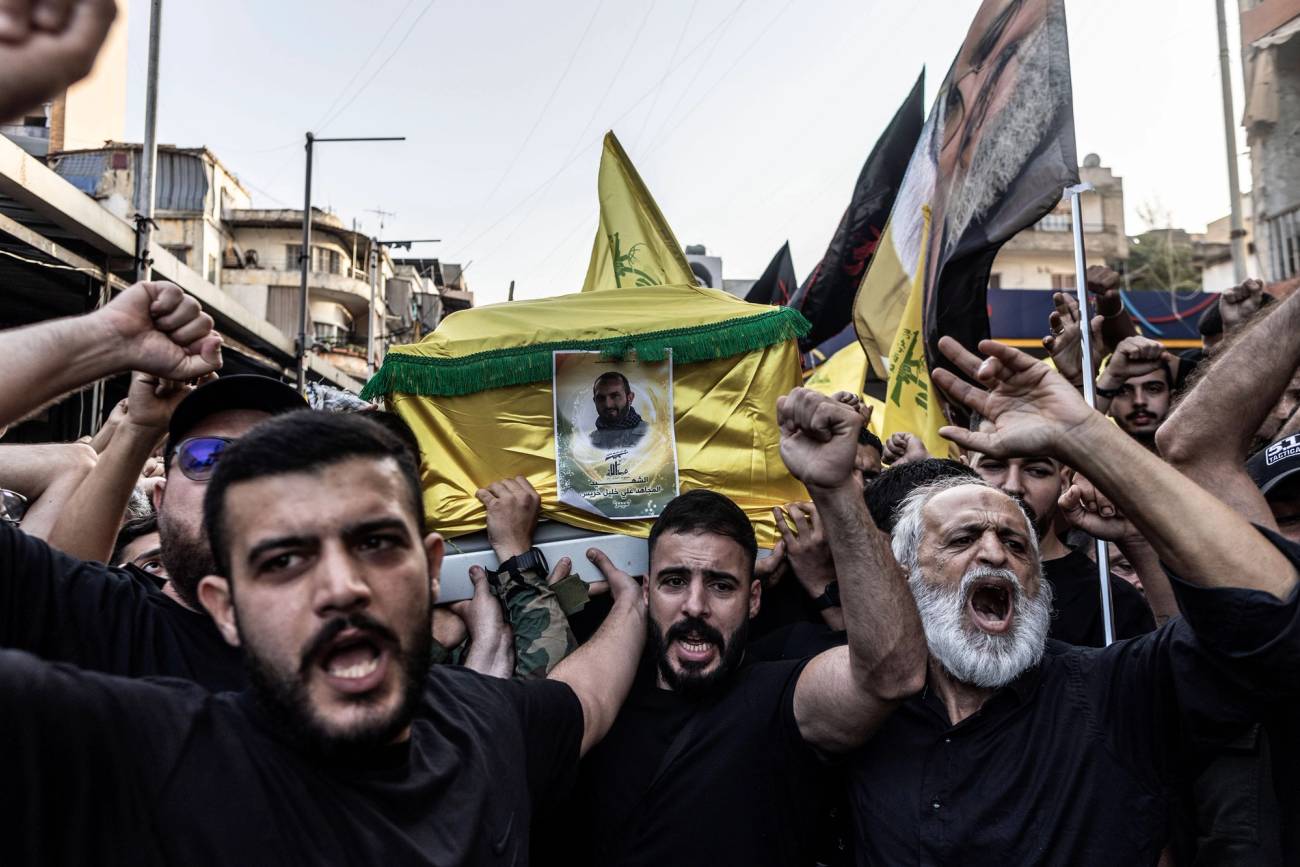 fot. Tomasz Pasternak
fot. Tomasz Pasternak
 SYSTEM PAMIĘCI
SYSTEM PAMIĘCI
KATARZYNA TÓRZ
Public Movement zdemaskowało konwencje społeczne towarzyszące zaangażowaniu. To, co dzieje się w naszych głowach, jest równie ważne jak wielka polityka
Czy przechodząc przez Muranów, można uwierzyć, że kiedyś (w czasach, które pamiętają jeszcze nasi dziadkowie) mieszkali tu – w nie-tym pejzażu i w nie-tej rzeczywistości – zupełnie inni ludzie?
Ten kwartał Warszawy wciąż istnieje, ale na nowo, z inną twarzą i sercem – jakby obumarłym. Przebywa w ukryciu, kipi od podskórnych, stłumionych energii – zapomnianych historii osobistych i spektakularnych bohaterskich czynów, po których pozostały skonwencjonalizowane ślady – tablice wyliczające ilość poległych lub zaaranżowane do celów refleksyjnych zakątki.
Performerzy z Public Movement wzięli ten kontekst pod uwagę na dwa sposoby. Po pierwsze – całkowicie mu się (p)oddali, respektując stacje tej swoistej drogi po męczeństwie getta, którą stale podążają izraelskie wycieczki. Po drugie – podjęli próbę dekonstrukcji tej sztucznej, narzuconej przez system pamięci warstwy. Posługując się pozornie prostymi, amatorskimi narzędziami – dramaturgią podstawowego ruchu, popowego beatu i reżyserowania tłumem – przedzierali się przez palimpsest materii przemilczanej, wypartej i spychanej w pustkę nieuwagi. Był to jednak proces dyskretny i na tyle nieoczywisty, że pozostawiał uczestnikowi-widzowi przestrzeń na własne przeżycie i decyzję o zaangażowaniu.
Niespieszny pochód przecinał ulice Muranowa, niebudzące trwogi w tych, którzy nie wiedzą lub zapomnieli o ich historii: plac Umszlag, bunkier Anielewicza, ulica Miła… W kolejnych punktach-przystankach Public Movement próbowało dotykać stref niewypowiedzianych lub przegadanych jak w heideggerowskiej Gerede (czczej gadaninie).
 fot. Mateusz Bala
fot. Mateusz Bala
Izraelscy artyści ubrani w białe spódniczki/spodnie, tenisówki, kurtki – wyglądali trochę jak młodzież ze szkoły, trochę jak dziwni sanitariusze. Za rekwizyt służyła im flaga. Ale nie flaga Izraela, a ustroju artystycznego: Public Movement z poziomymi pasami, niebieskim i białym, przeciętymi czernią żałoby. Wszystko bez zbędnych, natrętnych symboli. Następuje redukcja, tak jakby białe stroje i brak nachalnej scenografii miały wchłaniać niewidzialne, ciężkie oddechy traumy, która pozostała.
Podobnie jak inne części miasta, Muranów zbudowano na gruzach pozostałych po dramacie. Pagórki porośnięte trawą to pozostałości zrujnowanego getta. Mury powstały z przemielonych cegieł starych pożydowskich domów. Świadomość tego faktu nie skłania do moralnej oceny, bezowocna i nieadekwatna pozostanie też postawa pragmatyczna, racjonalizująca. To tylko fakt. I aż fakt. Brutalny i druzgocący, ale zarazem pozwalający historii na dalszy bieg i codzienne ludzkie życie. Jeśli miasto jest przestrzenią doświadczalną, polem drobnych, ale intensywnych zdarzeń, które pozostawiają trwałe ślady w egzystencji i tożsamości jego obywateli, to Public Movement – niczym grupa badaczy – eksperymentuje na tym właśnie polu. Izraelscy artyści w rytmie tandetnych poprockowych przebojów oddają hołd zgładzonym mieszkańcom. Wykonują przy tym uproszczoną, poddaną rygorowi musztry choreografię. Te proste, „małoartystyczne” działania znoszą wzniosłość, budzą wzruszenie – pozbawione melodramatu, oczyszczające. Lekkie – czy to w ogóle możliwe?
Na placu dwóch performerów z megafonami i czerwono-białą izolującą taśmą. Stają się rzecznikami biegunowych komunikatów. Po jednej stronie „prawda”, po drugiej „fałsz”, „kobiety” – „mężczyźni”, „przeszłość” – „przyszłość”. Zgromadzona publiczność powoli zaczyna rozumieć ten system i przemieszcza się w zgodzie z własnymi przekonaniami. Nie po raz pierwszy okazuje się, że w kilkuliterowych tworach zaklęta jest emocja i niekontrolowana myśl. Wypowiadane przez megafon, zaczynają rosnąć: „socjalizm” – „komunizm”, „Auschwitz” – „Oświęcim”, „Polacy kolaborowali z Niemcami” – „Polacy ratowali Żydów”. Na hasło „Izrael” – „Palestyńczycy”, ktoś przeciąga swoje dzieci na właściwą stronę. Z zabawy w „co wybierasz” rodzi się ruch, publiczna deklaracja. Na tym etapie wędrówki Public Movement dobitnie demaskuje podstawowe mikrokonwencje społeczne towarzyszące zaangażowaniu, dokonywaniu wyboru i przyjmowaniu wynikających z niego postaw. To, co dzieje się w naszych zwykłych głowach, jest równie ważne i decydujące jak wielka polityka.
W pamięci pozostaje scena finałowa, w której odegrana pod Pomnikiem Bohaterów Getta uroczysta zmiana warty, zwieńczona złożeniem żałobnego wieńca (z opaską-flagą PM), przekształca się w mechaniczny taniec disco. Rodzi on ambiwalencje – nie jest do końca wyzwolony, swobodny, nie niesie czystej radości. Raczej melancholię, niespełnienie – cokolwiek by się zrobiło, nic już nie ożywi tego, co martwe, przeszłe, zasypane. To, co można zrobić, to stworzyć ruch publiczny.
Francuski filozof Georges Didi-Huberman w książce „Obrazy Mimo Wszystko” (Universitas, Kraków 2008) gwałtownie odrzuca możliwość kapitulacji: „wyrwać obraz temu piekłu, mimo tego wszystkiego? Tak. Trzeba było za wszelką cenę nadać kształt niewyobrażalnemu”. Akcja Public Movement to próba wyrwania z paraliżu niewyobrażenia tych, którzy pozostali i mogą zabrać głos.
Zawartość publikowanych artykułów i materiałów nie reprezentuje poglądów ani opinii Reunion’68,
ani też webmastera Blogu Reunion’68, chyba ze jest to wyraźnie zaznaczone.
Twoje uwagi, linki, własne artykuły lub wiadomości prześlij na adres:
webmaster@reunion68.com




